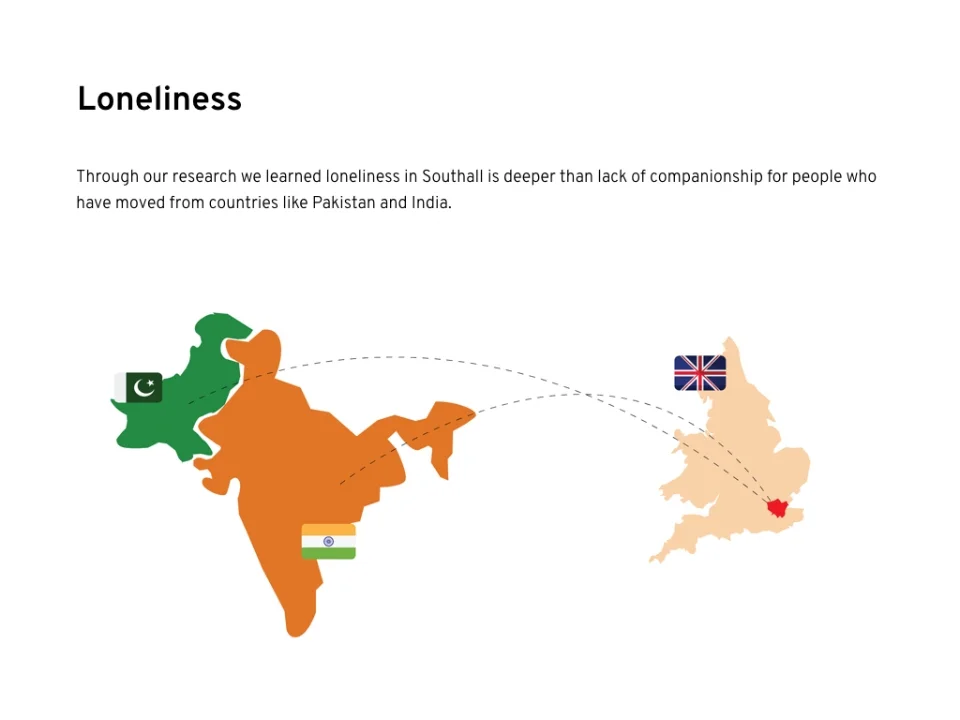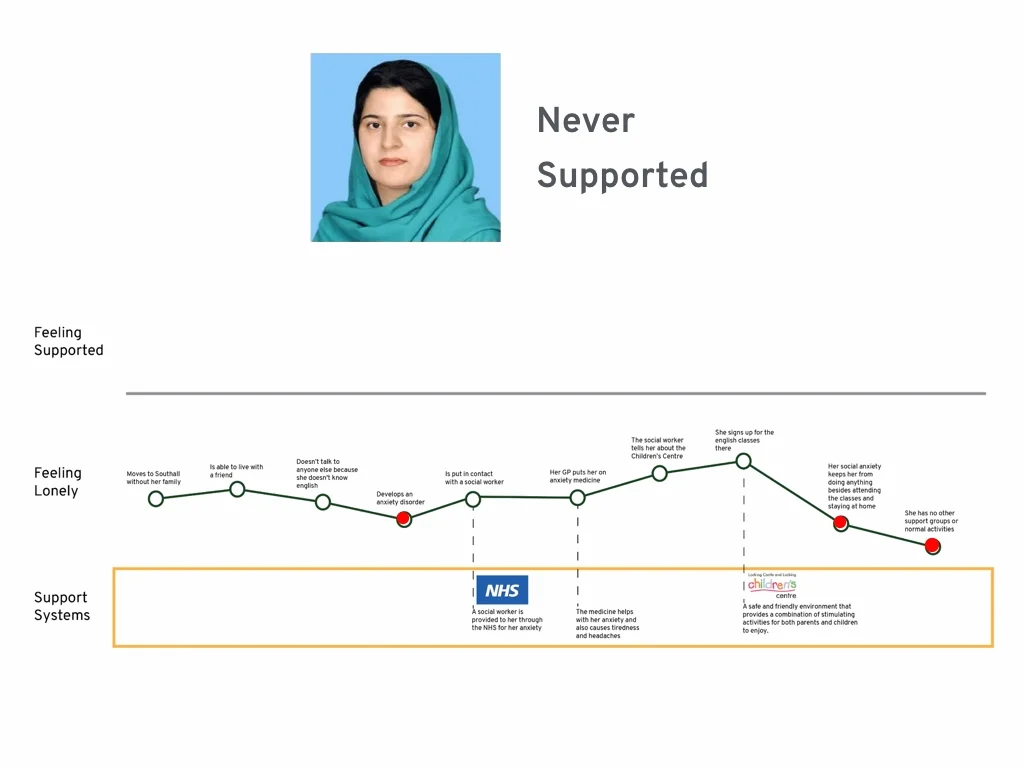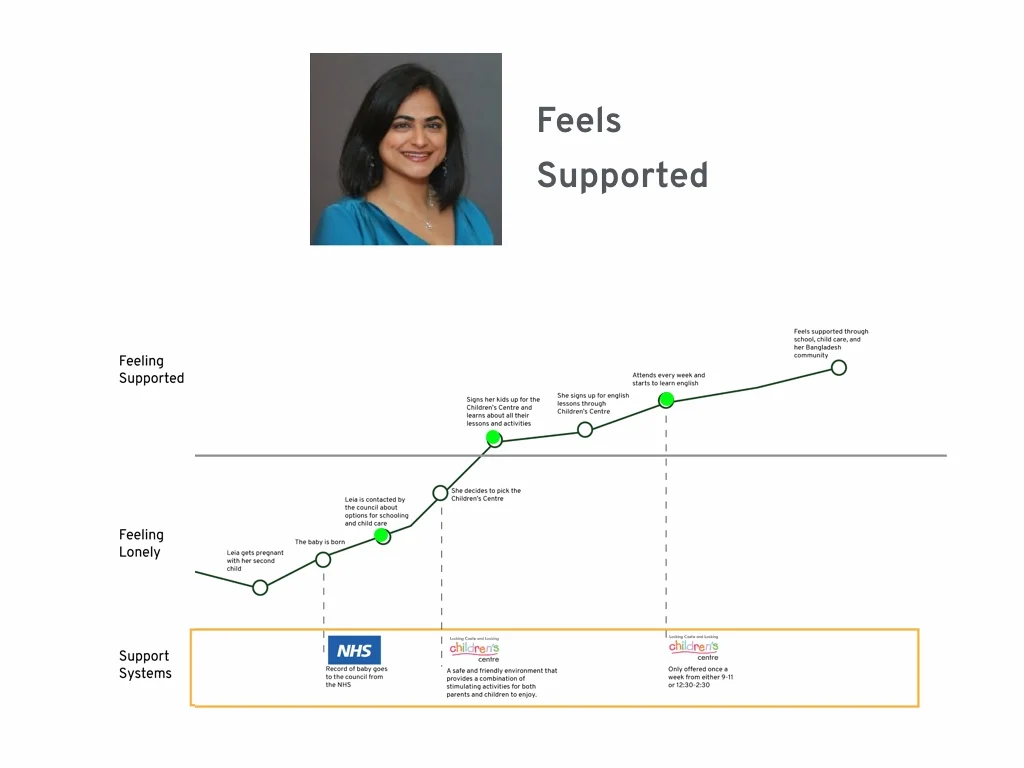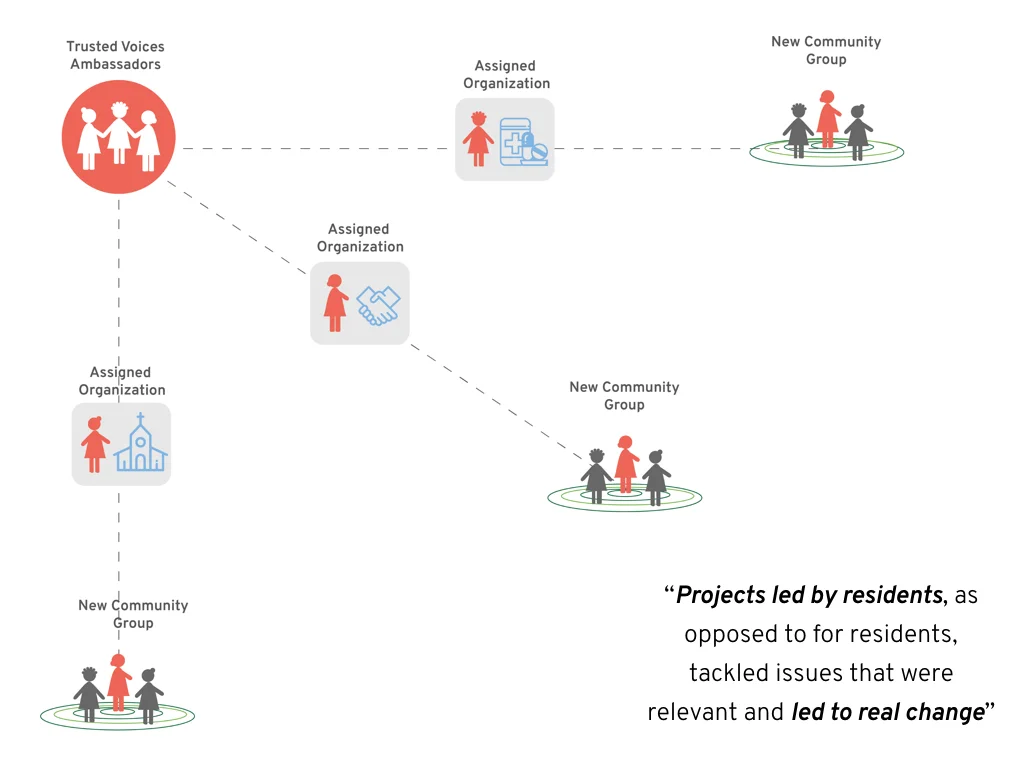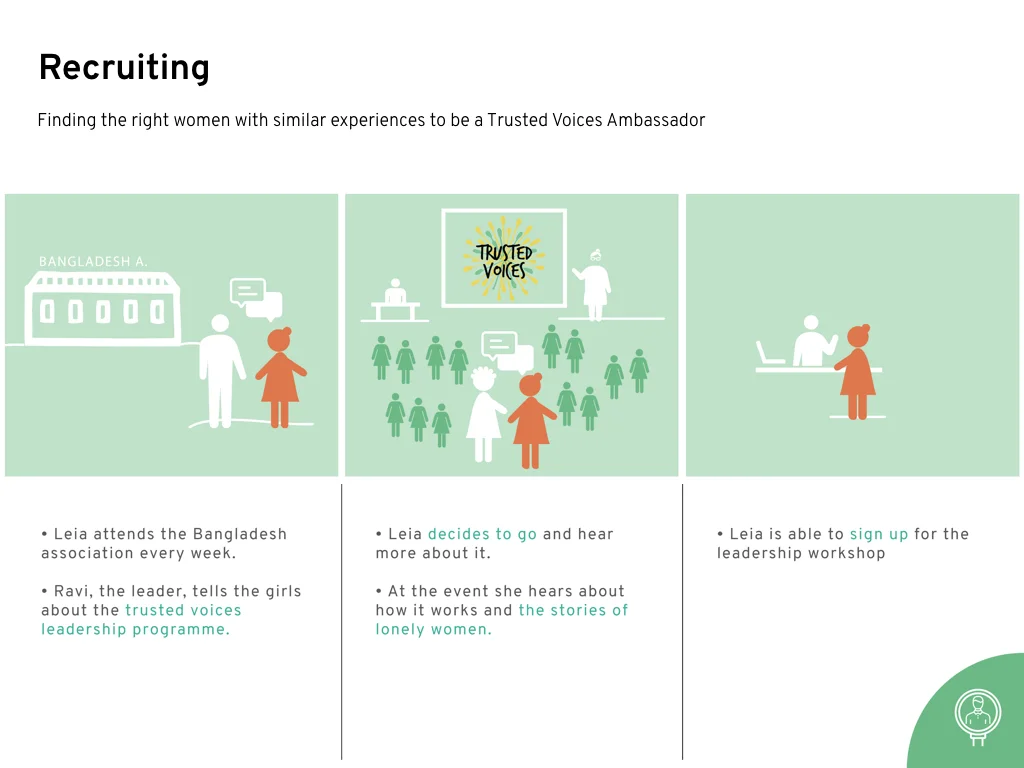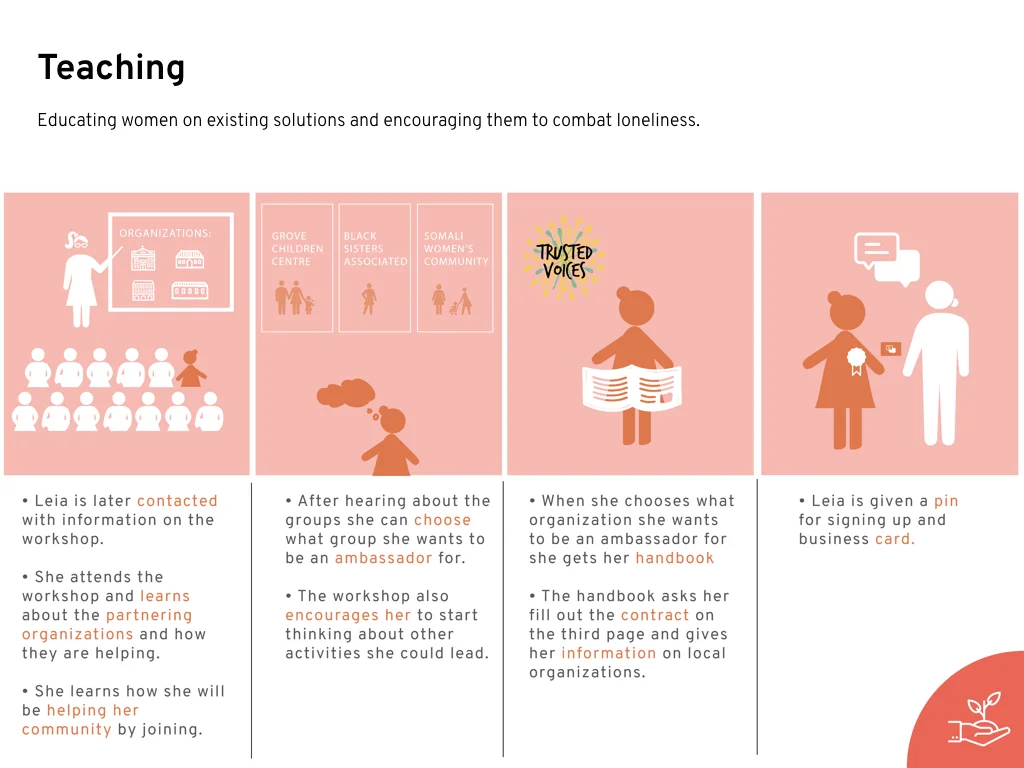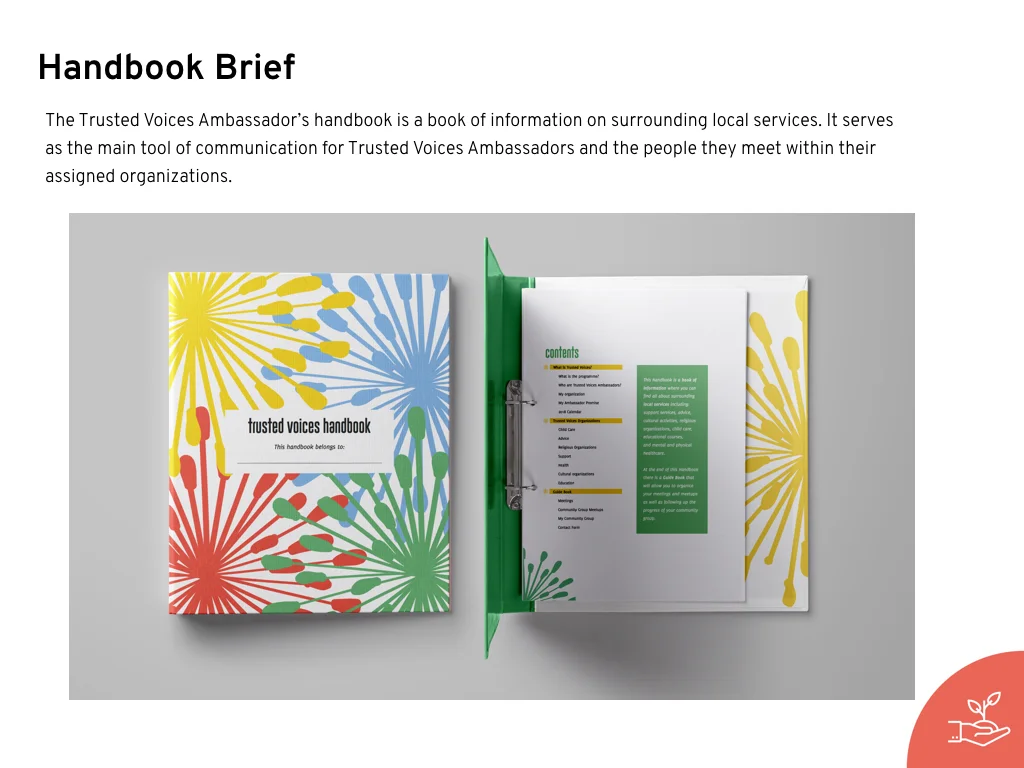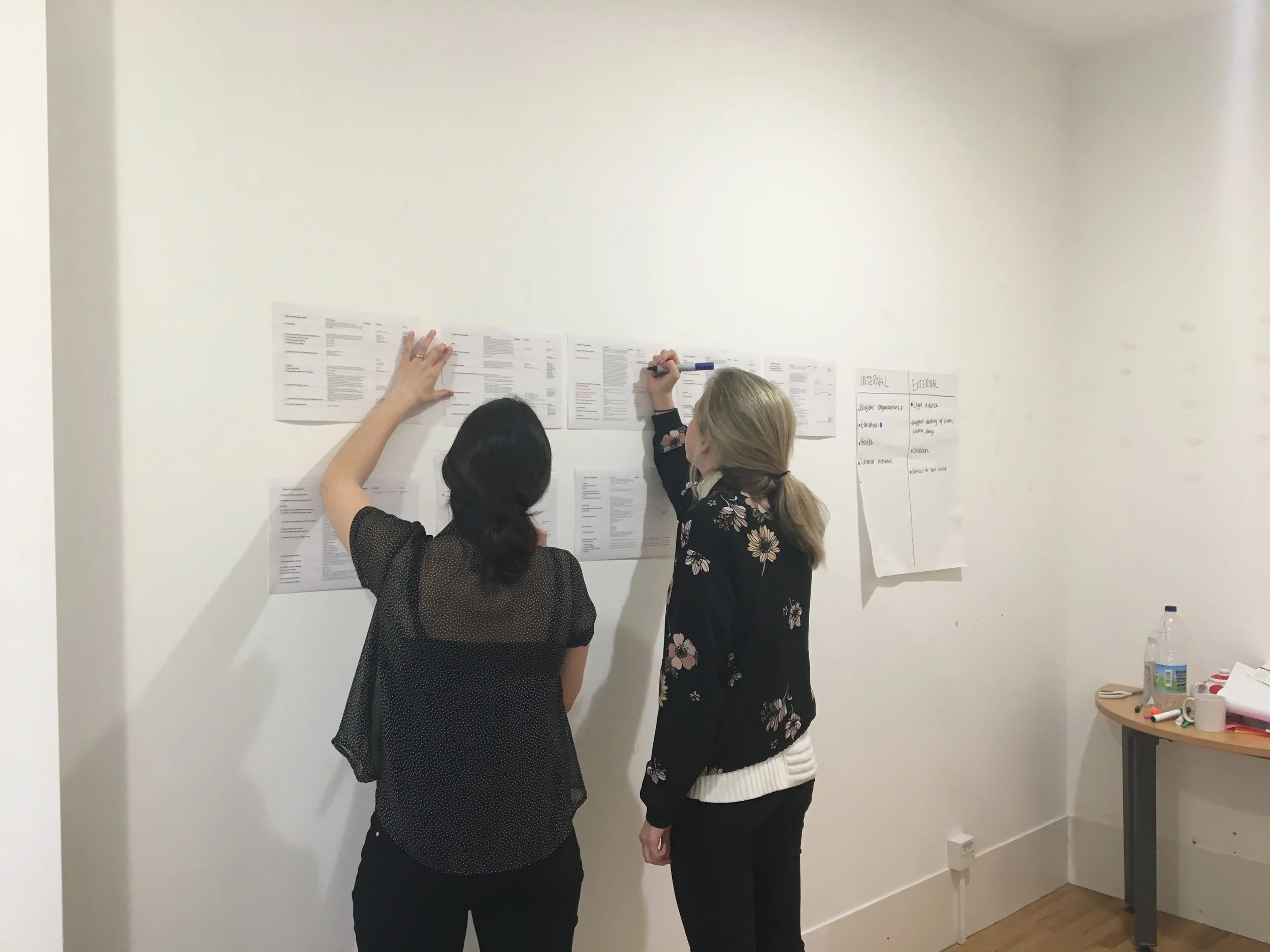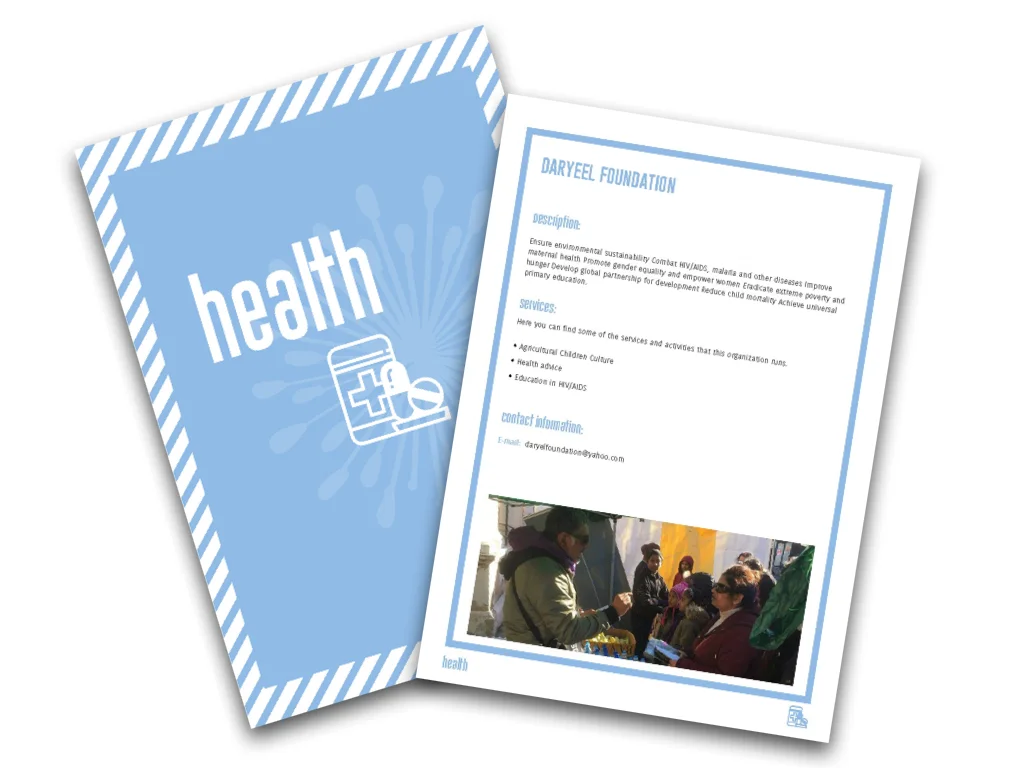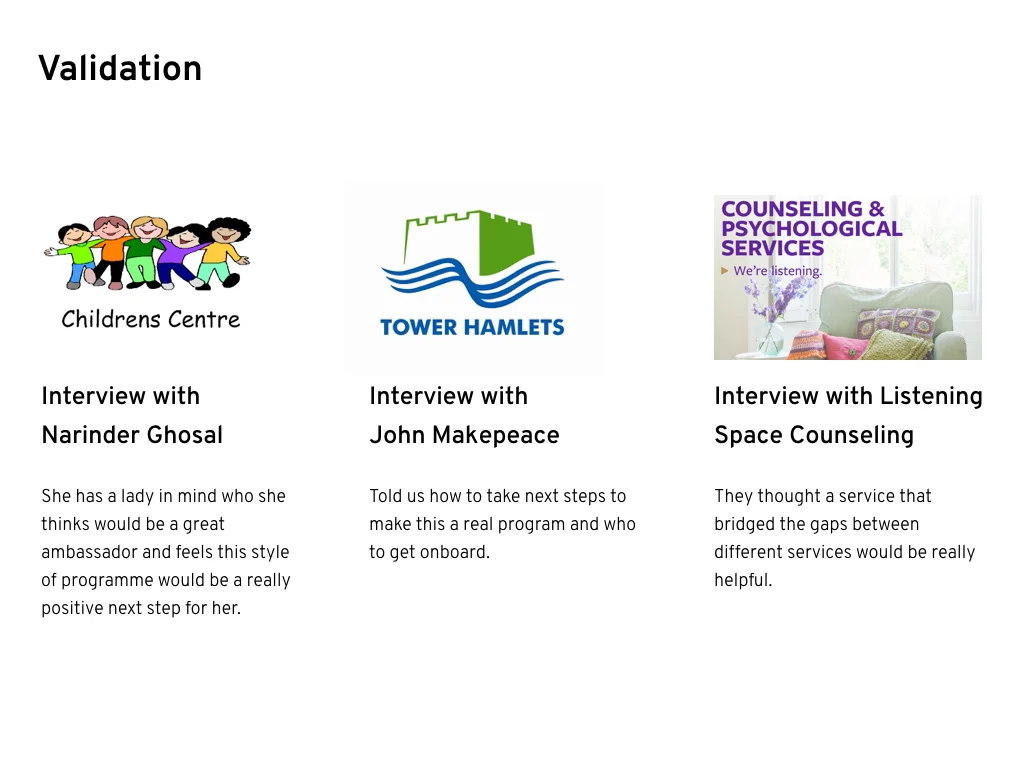Trusted Voices
Our Team of Service Designers: Breana Russell, India Roche, and Daniela Espinoza
Project Duration: 8 weeks of research, 2 weeks of testing, 2 weeks of final design
Project Brief
Ealing Council came to us asking: How might we create service propositions that can tackle the challenge of loneliness in contemporary London and project a vision of how to develop systemic interventions into the future?
Why Loneliness?
While loneliness is often hard to quantify – it is a state of mind, after all - according to early evidence, the physiological, and psychological effects of loneliness are growing in seriousness and emerging across social and economic strata.
• Within 20 years, 4 out of 10 homes in the United Kingdom will be occupied by someone living alone.
• Loneliness costs UK businesses £2.5 billion a year.
However, “little academic effort has been invested in estimating prevalence of loneliness”
(Age UK 2017)
My team and I decided to focus on the borough of Ealing called Southall. Southall is known as "Little India", because most of their population is made up of people from countries like India and Pakistan. We started our research by visiting Southall frequently and speaking with locals and local authorities.
We identified two reasons for this, which were internal and external factors. Internal factors being language barriers, cultural barriers, and lack of skills. External factors being fear of being identified as illegal and high crime rates, which created a lack of trust between people.
We identified two kinds of people to focus on, people who had just moved to Southall and were feeling very socially isolated.
We met Selma during one of our interviews in Southall. She could barely speak english, but she was able to tell us enough about her heartbreaking story from Pakistan to start identifying problems. This woman had lost everything and moved to Southall with no family or friends. Her story motivated us and made the importance of this subject real.
And people that had been living in Southall for several years and had overcome social isolation.
We did other interviews with women like Leia who gave us hope. She had been living in Southall for several years and could speak english really well. Leia was able to give us a detailed story of how she moved to Southall and had gained the support she had today. She told us all about her struggles and successes and what she thought would be a good solution for Southall's community.
From their journeys we learned that existing services which helped Leia overcome loneliness were hard to find. She was lucky enough to find them because she had family and friends already living in Southall when she moved from Bangladesh. She also had access to special services through the NHS because she had children in Southall. Women who have children in Southall get immediately directed to child care services, support services, and education. However, women like Selma would never get access to these services because she is unable to have children in Southall. Selma's only hope to accessing these services would be through searching for them online, and unfortunately she could not even speak English or use a computer to do so.
Selma's Disadvantages:
Services are offered online only
She cannot speak or read english
She has no family or friends
She does not know how to use a computer
Leia's Advantages
Services are brought to her attention after giving birth to her child by the NHS
She is allowed to access all NHS services despite her legal status because of her children
She has family and friends
She gets in contact with English lessons early on
Our Solution
Our solution is a non-digital scheme for the digital divide.
It is an open opportunity for all people moving to Southall that is inclusive and empathetic.
Trust Voices bridges gaps between services while encouraging meaningful and lasting relationships between people in a community.




